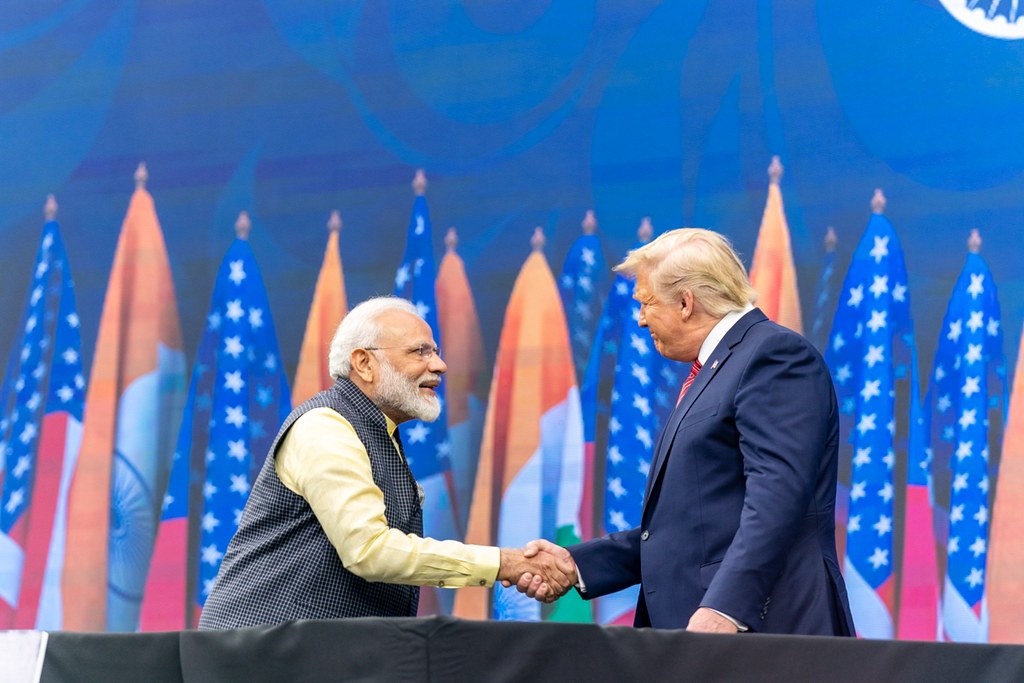In 2019 India’s Bharatiya Janata Party won a landslide victory. The results of this democratic national election demonstrated overwhelming support for Prime Minister Narendra Modi’s second term and his Hindu nationalist agenda. Emboldened, Modi has since made a stream of controversial and morally repugnant political manoeuvres. Most notably: the introduction of the Citizenship (Amendment) Act, which makes the religious orientation of a migrant a criterion for citizenship, and the annexing and lockdown of the autonomous, Muslim-majority state of Jammu and Kashmir.
In the midst of this controversy, the US, under the short-sighted leadership of Donald Trump, has forgone its historic role as the ‘international policeman’. And, instead of censoring India for committing these human rights abuses (referring to them as domestic issues), the US has sought to further warm the relationship between them. With the fading western hegemon and the growing eastern powerhouse performing symbolic, joint military exercises in a non-too-subtle response to the continuing rise in tension between their respective nations and China.
It has been suggested that this marks the start of a strategic partnership between India and the US. And the first step towards India joining the ‘arc of democracy’, a regional partnership proposed between the US, Japan, India and Australia. The geopolitical implications of such a partnership would be huge. The clear demarcation of a battle line between India and the US, on one hand, and China, on the other, marking the start of a fraught economic conflict. With favourable trade agreements between these nations acting to minimise China’s international presence and break the Eastern dominance of China, as felt by the nation’s flagship foreign policy, the Belt and Road initiative.
However, this appears unlikely. The posturing of Modi and Trump is one of optics. The US, and Trump with his somewhat worn-round-the-edges title of the ‘leader of the free world’, gives international legitimacy to the continuing human rights abuses of the Indian government. Meanwhile, Trump appeals to his political base in the run up to the election by having been seen to take strong, decisive military action against ‘red’ China, without doing much more than having sent his troops on a brief vacation.
Moreover, the actions of both India and the US are driven by the zeitgeist of nationalistic sentiment and thus only stretches as far as their respective short-term interests. The ‘the enemy of my enemy is a friend’ sentiment underpinning this relationship will prove a poor foundation for a long-term partnership. Indeed, in accordance with the dominant neoliberal ideology; that Trump is such a fond advocate of, there can be only one winner. Neither state is yet willing to cede their bid for the throne.
Alex Woodford
Image Source: Wikimedia Commons

